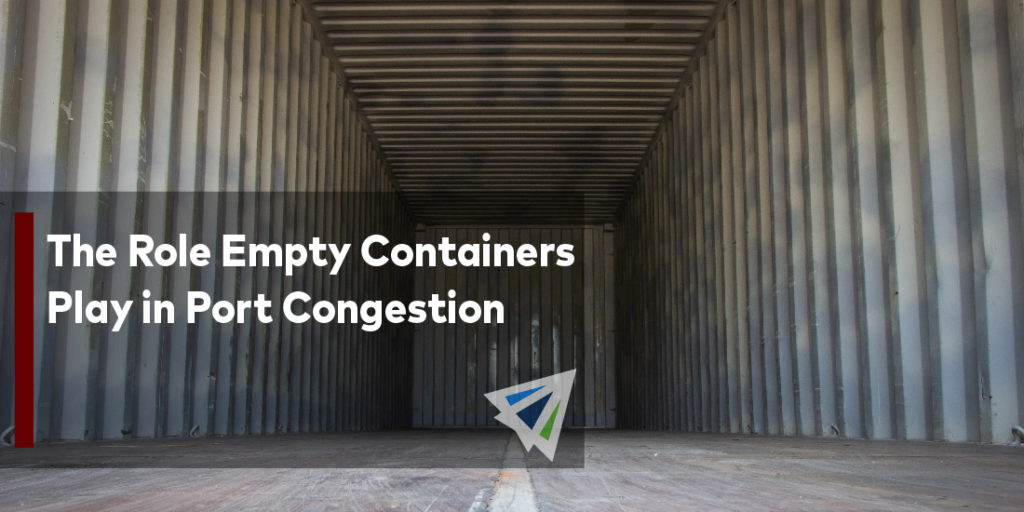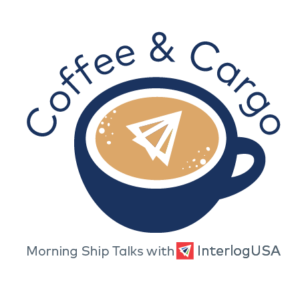Competitive Edge
April 20th, 2022
Stay Current with Interlog’s Weekly Newsletter:
Sign up for our next Coffee & Cargo webinar –> CLICK HERE
To watch today’s webinar –-> CLICK HERE
Any topics you want discussed in our next webinar? –-> EMAIL US TODAY
Ocean Freight Market Update
Headlines
- Reported by Rueters, manufacturers, including Tesla, began preparing on Monday to reopen their Shanghai plants as China’s most populous city speeds up efforts to get back to normal after a nearly three-week COVID shutdown.
- From Seatrade Maritime News, Maersk has stopped accepting bookings for reefer and dangerous goods into Shanghai on April 14 due to a lack of yard space.
- While Shanghai port remains operational it has become increasingly congested with trucking activity critically constrained and most warehouses still closed.
- South Carolina Ports reported an all-time container record in March, marking the 13th consecutive month of cargo records at the Port of Charleston. For more information, read our article below!
- The Ever Forward containership was refloated in Maryland’s Chesapeake Bay on Sunday, 35 days after it ran aground shortly after sailing from the Port of Baltimore, per Freight Waves.
UPDATE: Notable U.S./Canada Port Congestion as of 04/19/22
- Vancouver: 51 Backlogged Vessels
- Houston: 50 Backlogged Vessels
- Los Angeles/Long Beach: 46 Backlogged Vessels
- Norfolk/Newport News: 35 Backlogged Vessels
- New York/Newark: 26 Backlogged Vessels
- Baltimore: 26 Backlogged Vessels
- San Francisco/Oakland: 24 Backlogged Vessels
- Charleston: 18 Backlogged Vessels
- Savannah: 15 Backlogged Vessels
IMPORT: Asia to North America (TPEB)
Recent Developments:
- Despite the easing of COVID-related lockdown restrictions announced for some Shanghai districts, disruptions for suppliers and port operations at the Port of Shanghai are expected to continue.
- Some carriers have announced blank sailings for TPEB lanes as shippers should be prepared for possibilities given the present circumstances.
- More uncertainty with the TPEB market for suppliers and importers as increases of COVID-19 cases in southern China could spell similar halts in supply-side production and trucking operations for the region as seen in Shanghai.
- The usual suspects—severe congestion, deteriorating schedule integrity, port omissions, and blank sailings—remain contributors to an uncertain market.
Rates: Rate levels remain elevated. Premium market remains strong. MSC issued GRIs, effective April 1, from New Zealand/Australia/India origins to U.S destinations.
Space: Space remains critical and is expected to stay tight. Some carriers have freed up FAK space to the USWC.
Capacity/Equipment: Capacity remains severely under. Equipment deficits remain critical.
TIPS: Book at least 4 weeks prior to CRD. Strongly consider premium service and be flexible as it comes to equipment and routing. Additionally, be in contact with suppliers to check up on any COVID-related developments that can affect production.
IMPORT: Europe to North America (TAWB)
Recent Developments:
- USEC congestion remains pronounced. New York/Newark, Savannah, Charleston, and Norfolk/Newport News all have notable backlogs of vessels. Baltimore has also seen an increase in backlogged vessels.
- USWC ports remain significantly congested as well. However, wait times for vessels have cut down to 20-25 days at Los Angeles/Long Beach ports.
Rates: Rates levels remain high and are expected to increase during Q2 with GRIs and PSSs.
Space: Space is critical for USEC and USWC.
- Capacity/Equipment: Capacity remains tight for both North Europe and Mediterranean services. Equipment availability at ports, however shortages are still being reported at European inland terminals.
TIPS: Book 5 or more weeks prior to CRD. Strongly consider premium service for better reliability and no-roll options for your cargo.
EXPORT: North America to Asia
Recent Developments:
- Diminishing schedule integrity is contributing to void sailings, delays, vessel cut-offs at ports, and challenging post earliest return dates.
- For USEC, Port of Savannah is continuing to enjoy steady improvements to its operations.
- The Port of Charleston remains congested and at risk for omissions.
- Vessel arrivals remain fluid for USWC POLs.
Rates: GRI activity (limited) announced into April and early May.
Capacity: Available capacity remains fluid for USWC POLs.
Equipment: IPI origins remain adversely affected by deficits on containers and chassis. Primarily, a lack of rail equipment has become a predicament for the USWC.
TIPS: Book 4 to 6 weeks prior to CRD to secure equipment and vessel space.
Did You Know: Blank Sailings in Shanghai?
There is the potential that shippers could see an increase in blank sailings in Shanghai, because of the lockdowns in the city, which has disrupted export and import shipments.
So far the shanghai lockdowns have not yet resulted in widespread blank sailings on trans-Pacific, Asia-Europe, and Mediterranean services.
We discussed the Shanghai lockdowns on our webinar this morning. If you would like to hear more information on what is happening in Shanghai, what the aftermath will look like/how to prepare, the impact on other trade lanes – click here to listen to the webinar.
Source: Journal of Commerce
Freight News
Norfolk Southern adjusting their free time and storage policies
In an attempt to help encourage domestic and international shippers to pick up containers faster (especially on weekends), Norfolk Southern is implementing some changes to their free time and storage policies – something NS says is necessary to keep intermodal terminals fluid, the Journal of Commerce reports.
Effective April 25th, Sunday is being recognized as a business day – this is to charge rail storage fees, on domestic and international intermodal loads, the JOC noted. In addition, NS says, Detroit, Cleveland, Columbus, and Jacksonville are all getting turned into Tier 1 terminals effective June 1st, for international containers.
Important to note that starting June 1st, if an ocean container arrives at the Cleveland terminal on Friday, for example, it must be picked up on that Friday or the Saturday, or a $200 fee will be charged on Sunday – even though the terminal is closed, it’s still considered a business day.
Port of Charleston sees it's 13th consecutive month of record volumes, as Southeast ports brace for a summer surge
March has marked the 13th consecutive month that the Port of Charleston has seen record volumes. According to Freightwaves, the South Carolina ports handled 264,334 twenty-foot equivalent units (TEU), which is up 6% year-over-year and imports were up 16% year-over-year last month. One of the reasons for these record volumes is U.S. consumers spending on retail goods have been strong.
Many along the Southeast are preparing for a summer import surge and vessel backlogs with volume shifting away from the USWC – because of their own congestion, labor negotiations, and supply chain constraints. Eastbound trans-Pacific to the East Coast and westbound trans-Atlantic reliability was at 15.5 percent and 14.7 percent, according to Sea-Intelligence Maritime Analysis the JOC reported.
The Savannah Port feels well prepared, as they have six-off terminal pop-up yards and a peak capacity project that will add 1.2 million TEU of annual storage capacity by June.
We talked about this briefly in our webinar this morning – if you would like to hear more from our experts regarding this, click here.
Sign up for our
industry answers
Our team works to provide valuable, unique, and relevant content to assist you in finding solutions. Sign up now.

